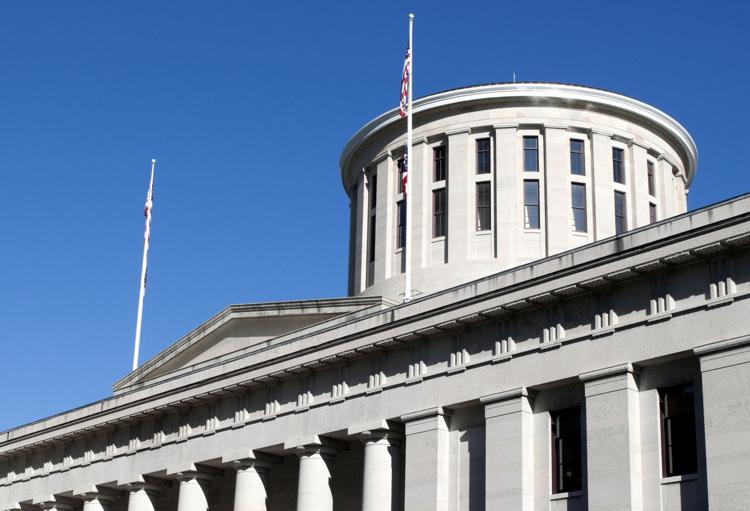DeWine signs bill allowing state to issue $555 million in bonds for school, infrastructure projects

The Ohio State Capitol in downtown Columbus.
(The Center Square) – Gov. Mike DeWine has signed into law a bill that allocates $555 million for school and infrastructure projects in Ohio.
Under Senate Bill 4, the state may issue $300 million in bonds through the Facilities Construction Commission for state-assisted K-12 school construction projects. It also permits the Public Works Commission to issue $255 million in bonds, including $175 million for the State Capital Improvement Program, an initiative that supports local infrastructure projects.
Both the state House and the state Senate passed the bill with overwhelming majorities.
“For more than 20 years, Ohio’s school facilities program has been a national leader,” state Rep. D.J. Swearingen, R-Huron, said in a news release. “All told, Ohio has invested more than $12 billion in construction, renovation and repair of more than 1,200 school buildings and counting.”
The provision for the $300 million in bonds “continues that commitment and allows local school districts to continue planning their upcoming construction program.”
According to a Legislative Service Commission (LSC) analysis, the Ohio Constitution authorizes the state to issue general obligation (GO) bonds for schools, and state lawmakers have approved more than $5.9 billion in such bonds. More than $2.6 billion in GO bonds for schools remains outstanding, according to the LSC analysis.
Unrelated to infrastructure spending, the measure also includes other provisions aimed at helping local jurisdictions amid the COVID-19 pandemic.
One allows local governments and municipal hospitals to buy personal protective equipment (PPE) without going through the regular competitive bidding requirements during the COVID-19 emergency. Another authorizes cities and townships to use up to 25 percent of their “unencumbered and unobligated” tax increment financing funds (TIF) to pay road maintenance workers and first responders, according to a state lawmaker.
“By allowing local governments to use these funds, we can keep these important personnel on the job,” state Rep. Bill Seitz, R-Cincinnati, said on Twitter.
“It’s the state’s obligation to serve as a good partner to our local communities,” Seitz added. “Senate Bill 4, along with these two amendments, display our commitment to working together with our local governments so Ohio can effectively combat the coronavirus pandemic.”

